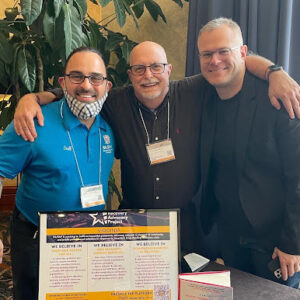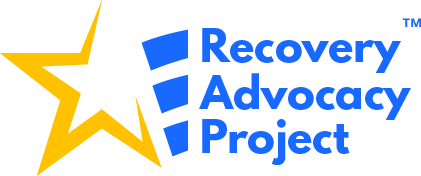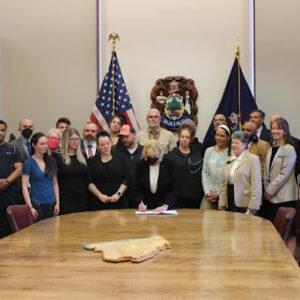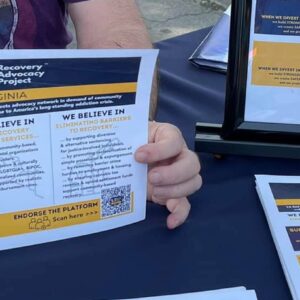Tom Jackson is a registered peer specialist at Western State Hospital in the Shenandoah Valley in Virginia. He came to the Recovery Advocacy Project (RAP) after reading American Fix, a book authored by Recovery Advocacy Project organizer Ryan Hampton. At the end of the book, Ryan talked about taking action modeled after that of ACT UP during the HIV/AIDS crisis of the 1980/90’s. That resonated with Tom, and he knew he had to take action.
“Ryan said we needed an ACT UP-level response to the opioid overdose crisis,” he said. After finishing Ryan’s book, Tom got involved with the regional RAP team, and a few months before the 2020 virtual Mobilize Recovery conference, he really dedicated himself to the RAP team.
With an aggressive and holistic platform, Virginia RAP has made great strides this year to help Virginians, even with limited legislative support.
One of RAP’s biggest successes was to change the way future Peer Specialists are trained. “The Certified Peer Specialist training in Virginia was totally culturally incompetent,” Tom explained. After reviewing the curriculum on diversity and cultural competency, he realized that there were three paragraphs on the topic. THREE – That’s it.
The Virginia RAP team went out and got approximately 160 signatures and also enlisted the help of Virginia Commonwealth University (VCU) to hold a focus group gathering information on the importance of cultural competence and diversity in the curriculum.
“We have had one (focus group) and it was successful!” he said. “The plan is to literally begin the peer certification training hour one day one with diversity, equity and inclusion right at the beginning of training to make sure everyone in the class feels welcome, safe, comfortable and included.”
They have also been asked to review the manual to make sure that there is inclusive language throughout. “It’s our biggest success.”
Virginia RAP is also very involved with guaranteeing there is safe and equitable housing throughout the state. Last summer, the Virginia Association of Recovery Residences (VARR) and RAP worked together to receive $10 million from the state as part of the Emergency Recovery Act money. With that money, VARR will start new recovery residences and also update the existing houses; additionally, $2 million over each of the next two years is allocated to the organization and will be used to expand and improve recovery housing across the state.
Additionally, Tom and others on the Virginia RAP team are actively involved in advocating for a living wage increase for peers. To do so, they need to focus on the Medicaid reimbursement rate for peers and recovery support services.
“We are hoping for a significant increase in Medicaid reimbursement rates for peer specialists, which right now are some of the lowest in the country,” Tom explained. “Correspondingly, salaries for peer specialists are some of the lowest in the country.”
Richmond was in the top ten cities for rent increases last year, and Tom explains that advocates are still fighting for a $15 to $16 hour living wage for peers, a dollar figure that is based on the cost of living from 15 years ago.
“If you adjust for inflation, it is $24 an hour and no one is advocating for a $24 an hour living wage,” Tom said. Tom is hoping to see an approximate 250% increase in reimbursement rates from Medicaid in the future. Maybe then, peers will be able to earn a living sustainable wage.
Virginia RAP is also holding community events. In May, Virginia RAP folks in Northern Virginia are hosting a viewing of Tipping the Pain Scale, a feature documentary film following individuals grappling with the current systemic failures of how our country has dealt with addiction. The group also plans to host more showings of the film. Joseph Green, an educator and spoken word artist who stars in the film, is also on the Virginia RAP team.
Members of the Virginia RAP team recently also took part in the WiLD, Wisconsin Leadership Development, which was paid for by RAP. According to their website, the vision behind the WiLD Project is to cultivate their greatest resource—people—as a source of renewal for the country. There is so much going on with Virginia RAP – follow them on Facebook to stay engaged!
If you are interested in joining Virginia RAP, contact Nathan Mitchell at nathanm@mcshin.org. The team meets every other Tuesday for an hour virtually.

Nathan Mitchell, Tom Jackson and Ryan Hampton met to advocate for recovery at the NARR annual conference.



